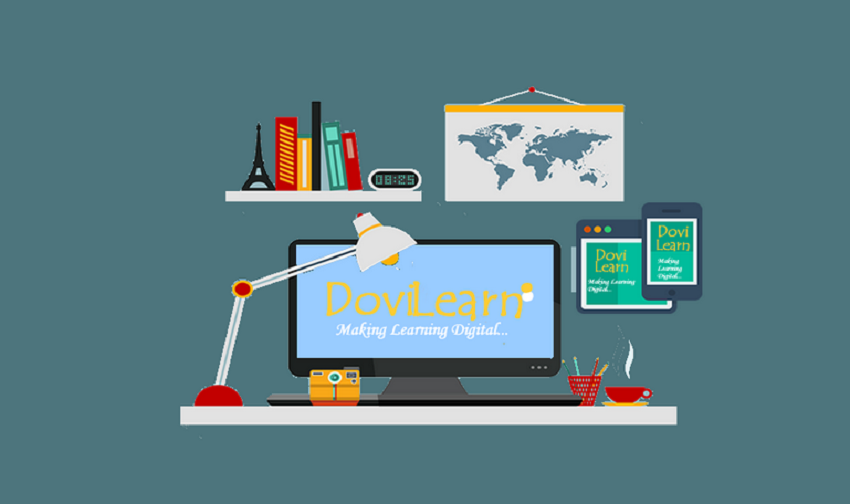Nigerian e-learning platform DoviLearn believes it is different to other companies operating in the online education space, offering full integration and end-to-end automation.
Launched by startup Dovichi Services, a digital tech company founded in Lagos last year, DoviLearn claims to be Nigeria’s first fully integrated e-learning portal, offering professional online courses in areas such as digital marketing, human resources and financial management.
The startup says its mission is to digitalise learning, and that it has partnered with some of the world’s best trainers to obtain content for the portal.
“We believe that when the means of learning is easily accessible, always available and, of course, affordable, people can equip themselves with the right skillset they require to succeed,” Okeke Vincent Chidozie, chief executive officer (CEO) and founder of Dovichi Services, told Disrupt Africa.
“We want to fill in the gap on how people get their training. We feel it may not be very necessary for one to travel quite far for their training, and this is the gap DoviLearn has come to fill.”
Chidozie said DoviLearn is the “ideal brand” for organisations wishing to upskill their staff as well as for individuals looking to grow their skillset and position themselves for career advancement. Chidozie said the platform is set apart from its competitors by its full integration.
“DoviLearn is not just a website where videos are uploaded, as some may mistake it for,” he said. “DoviLearn is a fully-fledged integrated e-learning portal, using state of the art Learning Management System (LMS), supporting all kinds of SCORM-based, and TIN CAN-based technologies.”
All activities within DoviLearn are end-to-end and automated, from when a user registers until they qualify for their certificate of completion.
“Our aim is to digitise learning, we believe that more people can have the opportunity and willingness to learn new skills when the means for these are easy for them. DoviLearn is not just an e-learning portal, but a lifestyle, a way of learning,” Chidozie said.
“We are bringing total convenience, ease, and an improvised way of learning. Through DoviLearn, you can access high quality training contents through your mobile device, PC, or laptop, where you can take these courses anytime convenient for you.”
The startup has also added a community element to the platform, something Chidozie said he felt many e-learning portals lacked.
“Learning can be quite boring when it is just you, or perhaps you and the instructor, but through the DoviLearn community, you have the opportunity to engage with other professionals,” he said.
Users that create an account with DoviLearn gain access to the community as well as the courses. When a user enrolls for a particular course, they also gain access to the community for that particular course, allowing them to network with co-professionals who share the same interests.
“This is what makes DoviLearn great, because e-learning and professional social network are interwoven,” Chidozie said.
He sees huge potential in the e-learning space, evidenced by LinkedIn’s recent purchase of Lynda.com for US$1.5 billion, especially in Africa.
“Lack of digitalisation of educational materials, internet cost and availability, government involvement, sensitisation, awareness, among others, may have affected the growth of e-learning in many African countries lately. E-learning has obviously faced some setbacks in Africa, which has contributed to its slow growth and acceptance,” Chidozie said.
“With the increasing internet penetration and ubiquity, we believe that the potential for e-learning in Africa is enormous. It is time, and e-learning is here to stay.”
The startup was initially self-funded, but raised seed funding of NGN2 million (US$10,000) in order to acquire the courses. More personal funds have since been injected, and DoviLearn is looking for investment in order to scale. The startup has made some revenues and been impressed by the level of uptake.
“We have made some revenues, though with very little marketing effort. But Nigerians responded positively anyway, we are impressed and quite hopeful, the turnout is quite promising, and this time we are preparing for B2B marketing which we left out after our launch,” Chidozie said.


